Nowadays, it feels like there is no such thing as "no bad days." Between layoffs happening left and right and people opening up to Elmo about their mental health on X (formerly known as Twitter), life has been a little challenging to navigate on our own.
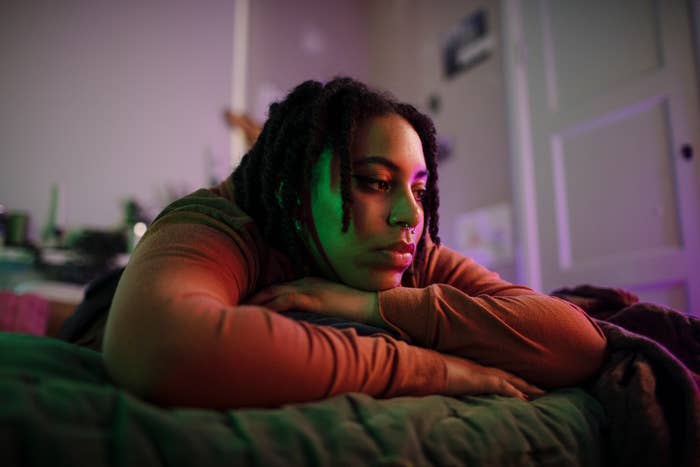
The good news is, if you or a loved one needs support, you can ask the people you're comfortable with for a new form of community care called "The 90-Day Dinner."
In this TikTok video, Becca Havian, who is getting her master’s in mental health counseling, explained what a "90-Day Dinner" entails: "I'm leaving soon for what my friends and I call a '90-Day Dinner.' The term was coined by a friend of a friend [Sarah Fox Tracy], I think. And basically, what happens is if one of us is feeling in a funk, if something really shitty happened, if we find ourselves in a breakup or lost our job or it doesn't even have to be that; it could be general anxiety or a feeling of stuckness, we can call a '90-Day Dinner.'"
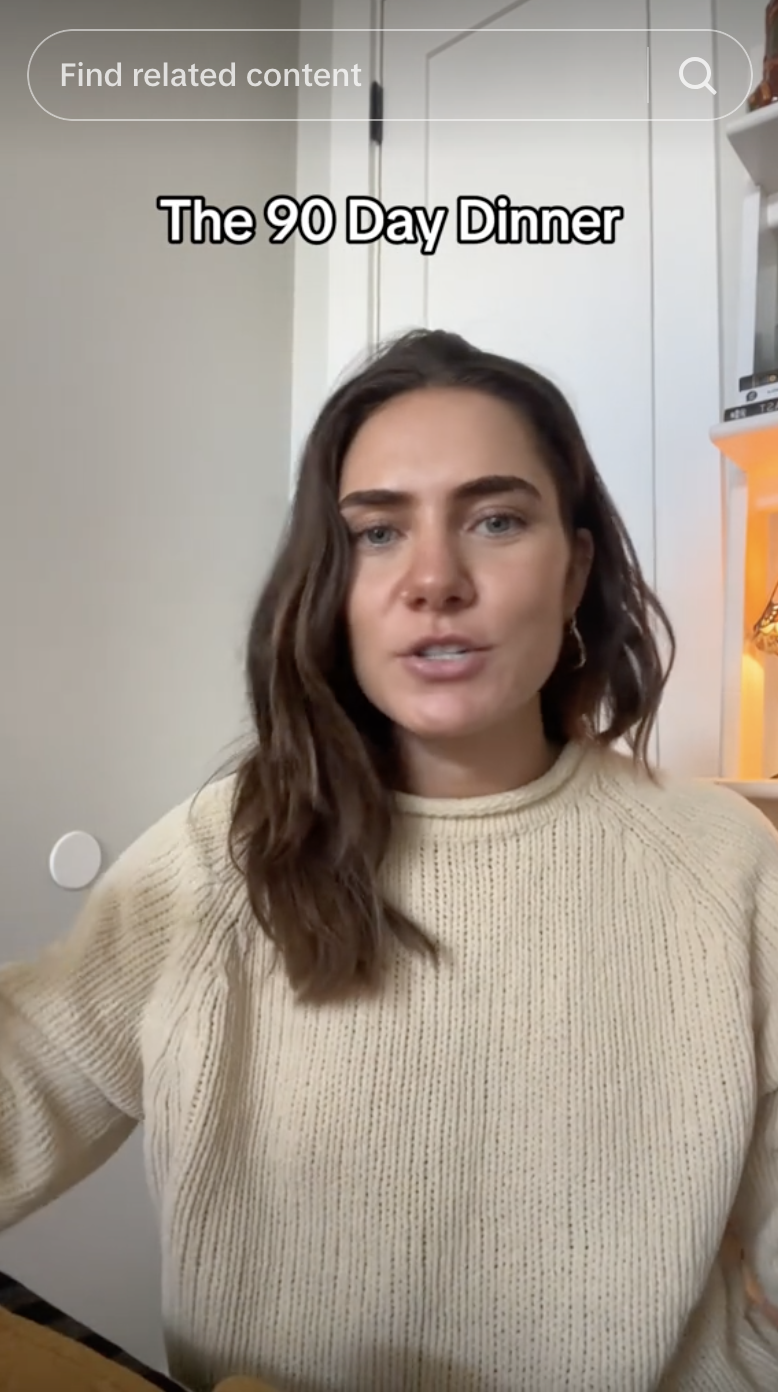
But what exactly is the purpose of the dinner? Becca said it's to provide perspective. "At the time you're calling for the 90-Day Dinner, things are feeling bad," she said. "You're like, 'I can't imagine a time when I'm not going to be feeling this way.' And by the 90-Day Dinner, the idea is that something will have shifted."
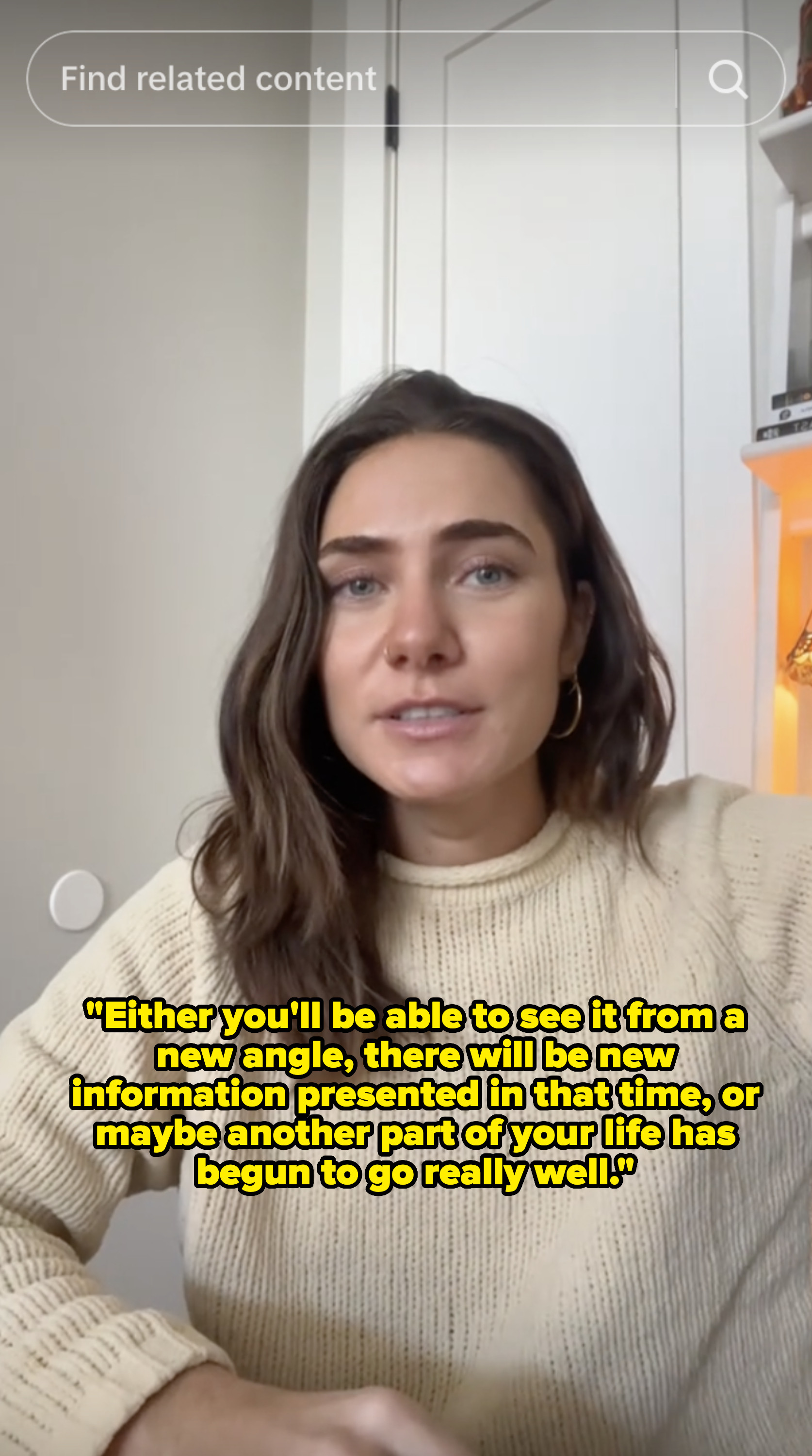
"And I just love the tradition," she explained. "I mean, it's always a bummer that someone has to call a 90-Day, but I love the feeling of getting to the dinner and being like, 'What's changed, baby girl? How are you feeling compared to how you felt then?'"
"And I think the idea of emotional permanence is something that is really productive to shed, and this tradition is so good at helping us understand that the feelings we are having — discomfort, sadness, anger, frustration, whatever it is — they're fleeting; they will change."
She also explained how the timeframe of 90 days can aid in the situation: "And 90 days is a weird paradox of time that feels simultaneously really long and really short. Most people show up to their 90-Day and say, 'I can't believe it's been 90 days; it feels like it's been so much shorter or so much longer.'"
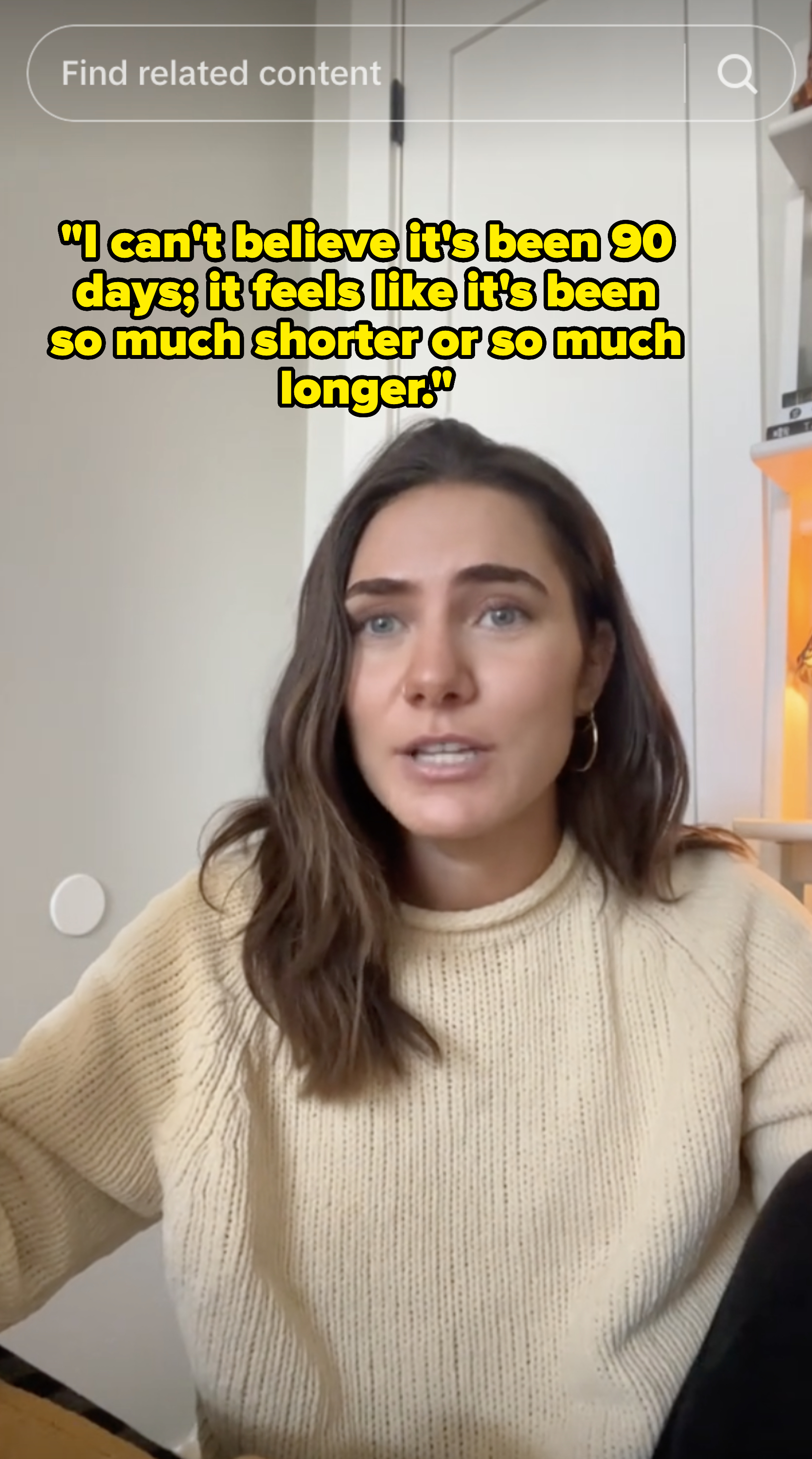
But if you don't have local friends whom you can call for a 90-Day Dinner, Becca also explained how she recently made a virtual dinner with a few long-distance friends. "So one of us called a 90-Day recently, and we hopped on FaceTime [right after she asked for the 90-Day], and chatted, and I was like, 'I'll take notes what you're reflecting on' because that can be helpful to have, in her own words, what she was feeling at that time," she said.
"And, for this group, we're actually going to be together in person on her 90-Day. However, if we weren't going to be in the same place for this, I was going to suggest that we should just get the same frozen meal from Trader Joe's, and all have it at the same time on FaceTime because the beautiful thing about processed food is that there is consistency in flavors, so it's kind of unifying in that way."
She continued by saying that you don't need a big group of friends for this kind of dinner to work: "I just love the concept. I also think if you don't have a big group of friends, this is not something you're precluded from," she said. "Like, you can do this with your mom, your cousin, or one buddy. The experience of having people along for your journey through a challenging situation is a really powerful one."
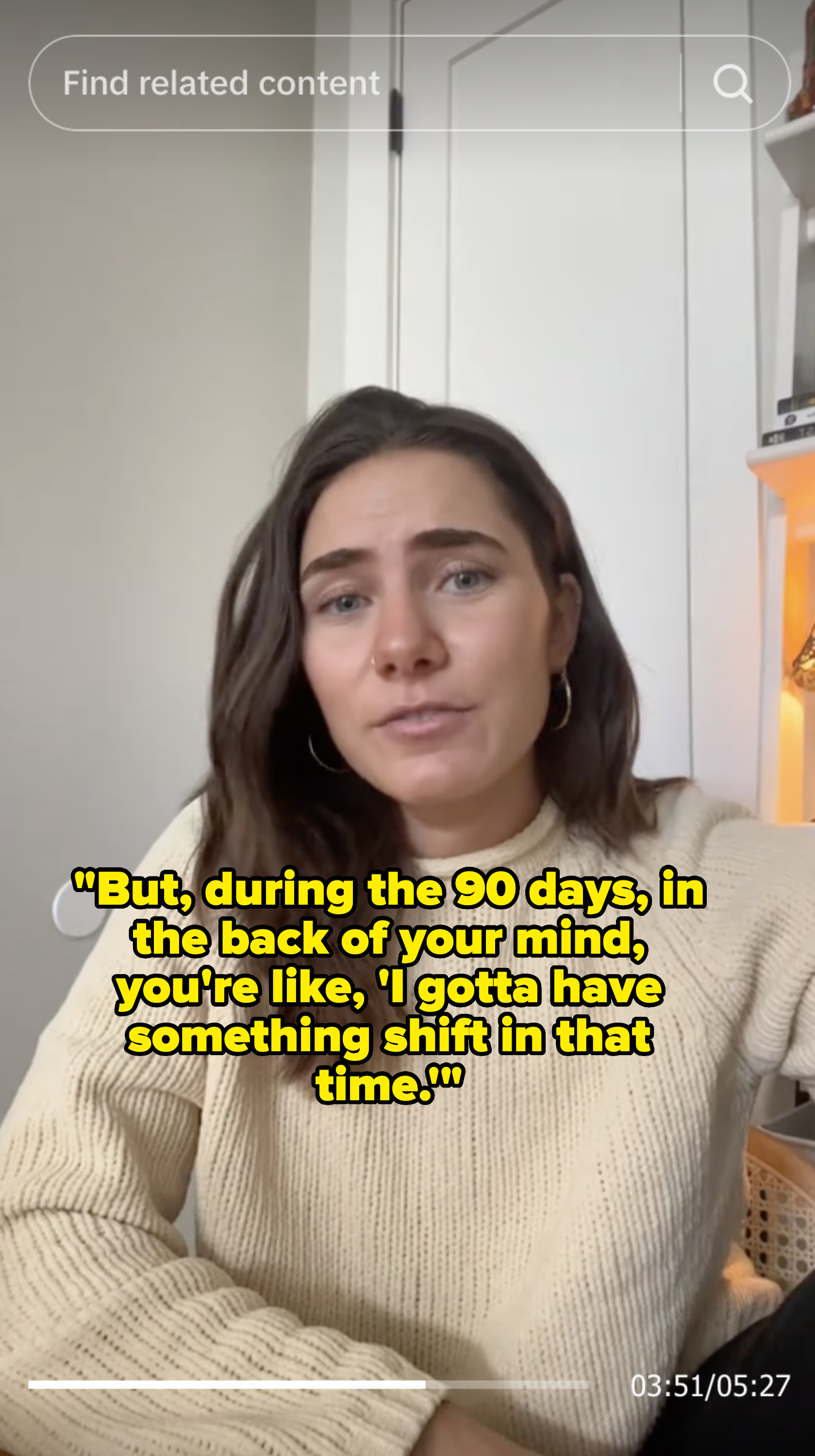
"But that experience of having at least one person who is clued into a challenge in your life and can help you recognize the growth that occurs in those 90 days is so beautiful," she said. "And I think loneliness is an epidemic in this country, perhaps the whole world, and what a lovely thing to have that sense of companionship in a hard time."
After Becca posted the video, it garnered over 1 million views. I reached out to her and therapist Rachael Benjamin, LCSW, from Tribeca Therapy to understand how the 90-Day Dinner can impact our mental health and friendships.
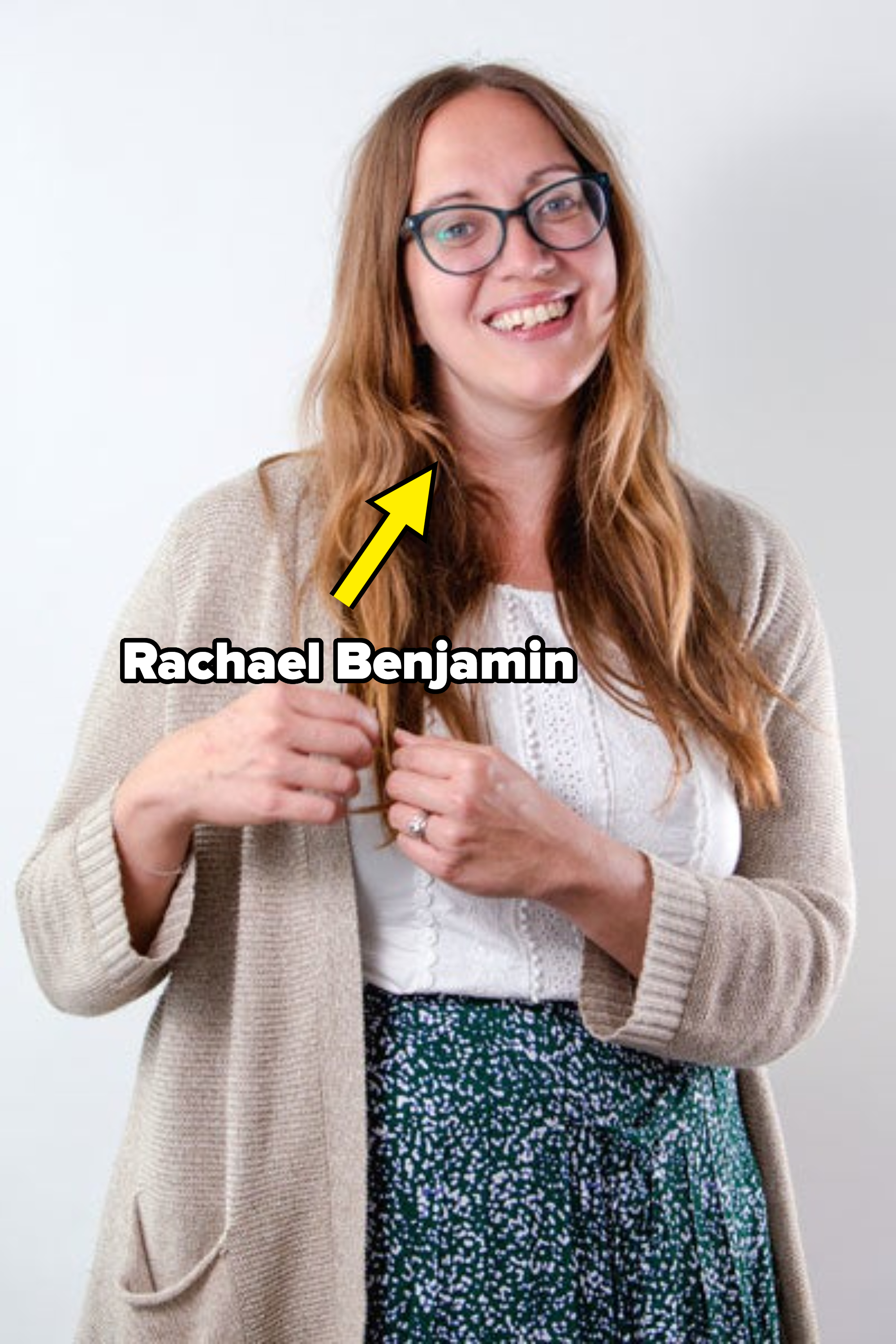
According to Rachael, the 90-Day Dinner is a great example of how we can be creative and honest within our friendships. "That’s a wonderful thing. It makes me think that there are SO many ways to be creative in our relationships. ... It’s ideal, when someone is struggling, to have a way of reaching out, like calling a meeting for and about themselves."
While it might be difficult to be vulnerable about a very challenging issue, Rachael explained that being honest about how you’re doing and feeling and asking for help within your community can be powerful. And Becca couldn't agree more as she believes empowerment is one of the byproducts of the 90-Day Dinner. "I’d encourage friends to lean into that goal during dinner," she said.
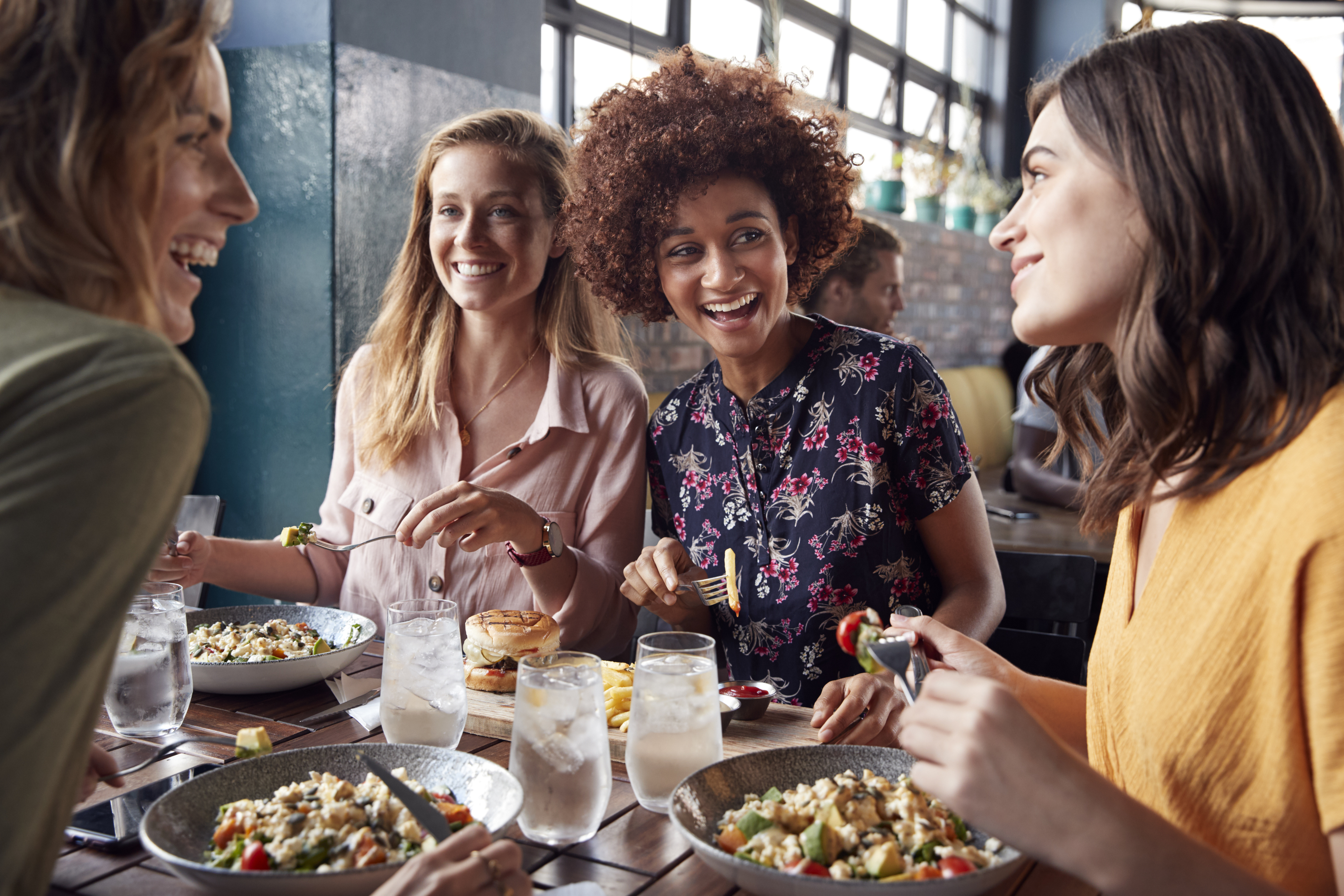
For instance, Becca said it's important to remain deferential about how the meeting flows to whoever called for the dinner, whether it's you or your friends. "Ask them what amount of reflection will feel good," she explained. "Some folks show up to their 90-Day wanting to analyze every little shift that’s occurred, and some are less interested in poring over the details. I think there’s inherent value in any outcome."
According to Becca, in moments of crisis, it can be challenging to believe or remind ourselves that our feelings won’t last forever, which is why facilitating reflection and offering perspective for our friends is so important. "Not only is it critical for helping them heal, but also, in cases of deep loneliness or depression, it can be a protective factor against suicide risk," she said.
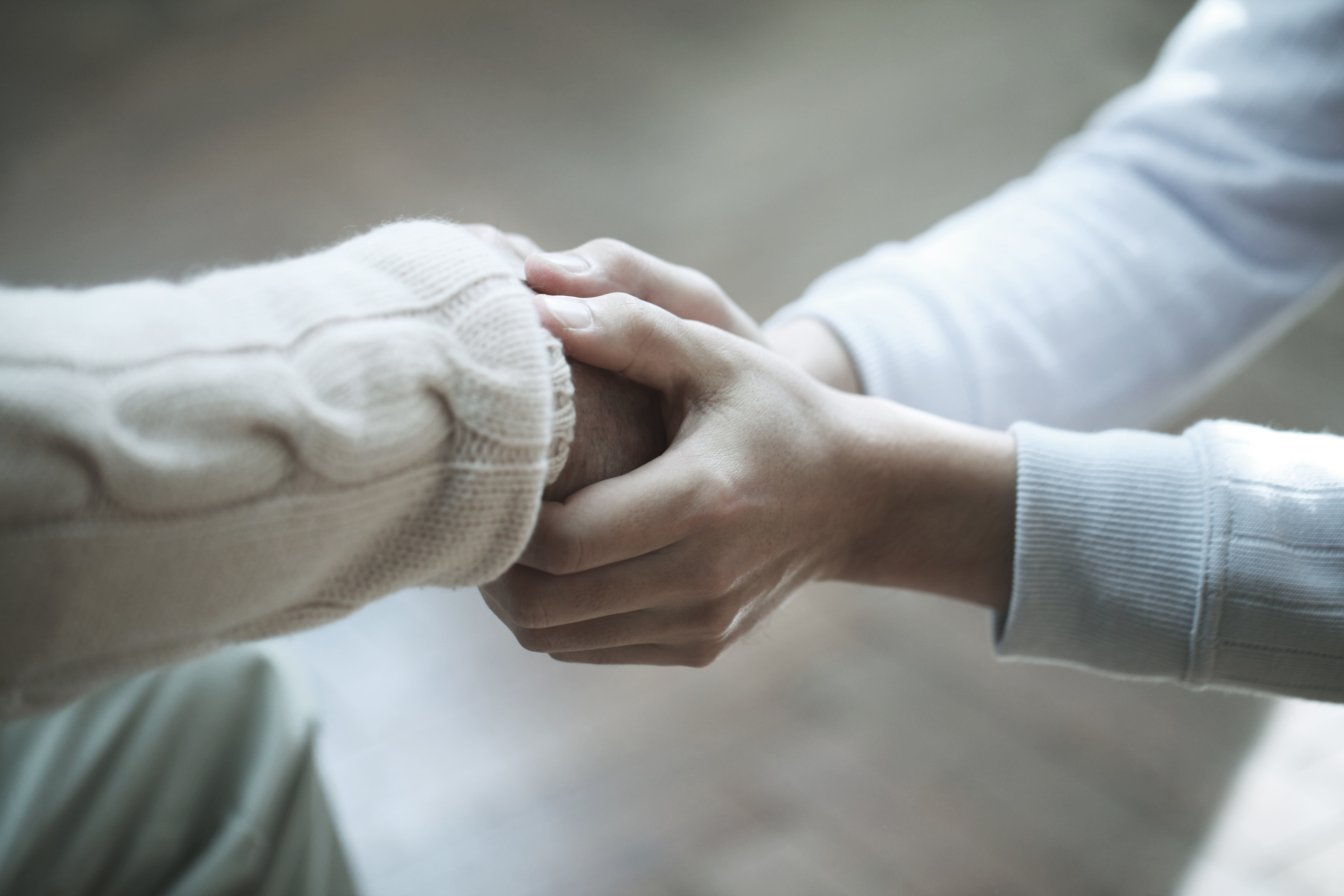
Rachael added: "In our suffering and painful moments, we often need more from others in our lives and ourselves than we allow ourselves to recognize or let others know." So, if you or your friends need more support before the 90-Day Dinner, Becca said there's room for adjustment.
"It’s most supportive to encourage the subject of the dinner to approach their 90-day on their own terms," she said. "I’ve had long-distance friends who updated the rest of us on the issue during weekly FaceTime calls, and I’ve also had friends who didn’t want to communicate about it with any frequency at all. Both can be effective."
"As far as the role of the supportive friend, I would say use your judgment based on your relationship with and knowledge of the person calling the 90-Day," she continued. "It also doesn’t hurt to ask them, 'What’s going to feel best to you? Do you want me to continue to check in? How often?' 90 days is a long time, so allow them to change their mind and adjust as needed."
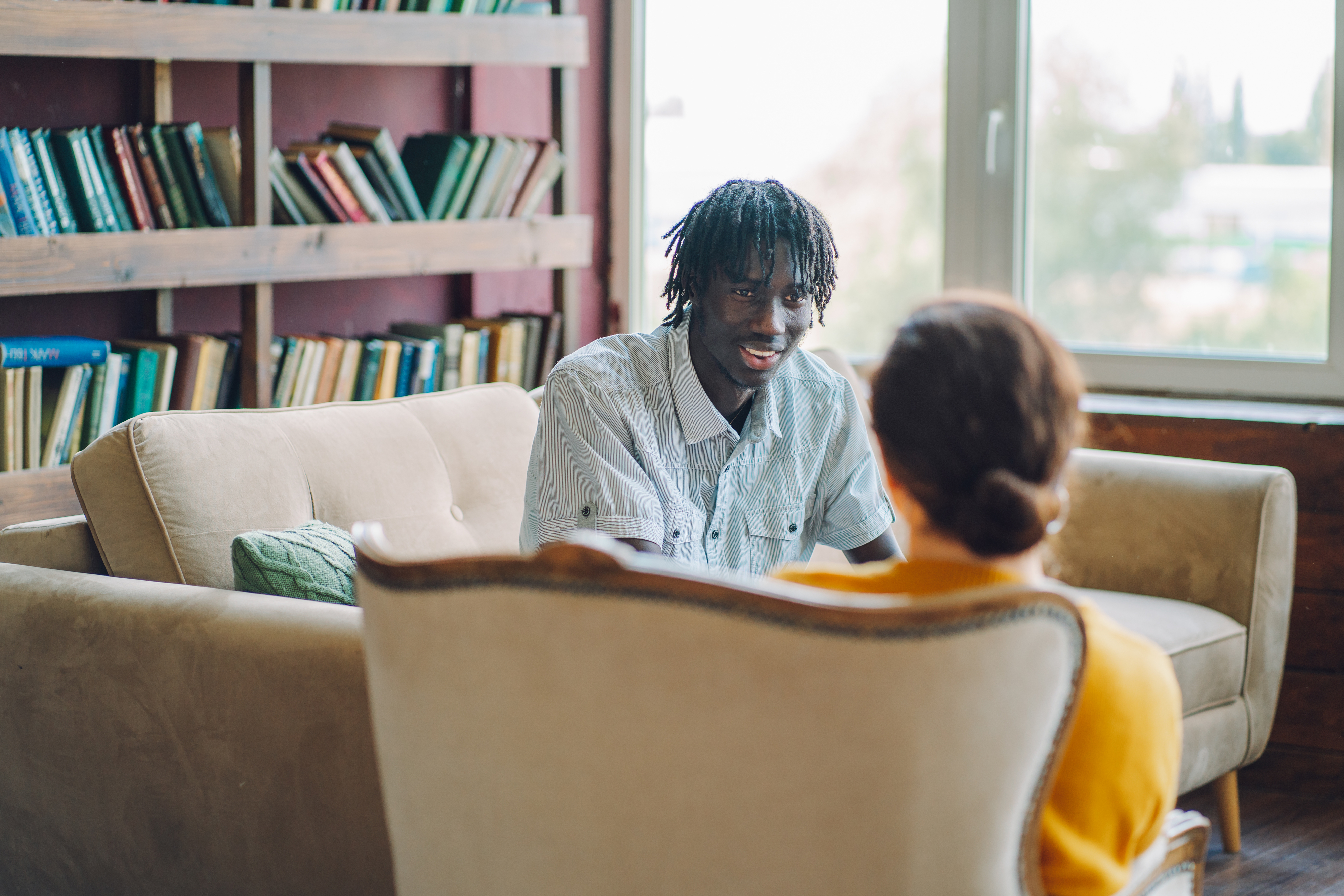
Even though the goal of the 90-Day Dinner is to aid loved ones with support, it might not guarantee that someone will feel better after the 90 days. "If they are feeling the same or worse, that is an interesting data point that could mean a lot of things," Rachael said. "They may need a whole lot more support than they have been getting or letting themselves receive. Maybe it’s a sign that they need professional help from a therapist or psychiatrist, as well as more support from their friends, partner, or family."
As Becca can attest, based on the comments people left on her video, it’s clear not everyone feels that level of support with their friends or feels that they have a network of people to lean on.
However, if you do have that support and things still feel crappy after the 90 days, that doesn't mean things aren't shifting within your life for the better. According to Rachael, it’s also possible that it’s a sign that something is working. "Worse doesn’t always mean bad," she explained. "They may be feeling the deep moment of grief more fully and letting themselves break down a little."
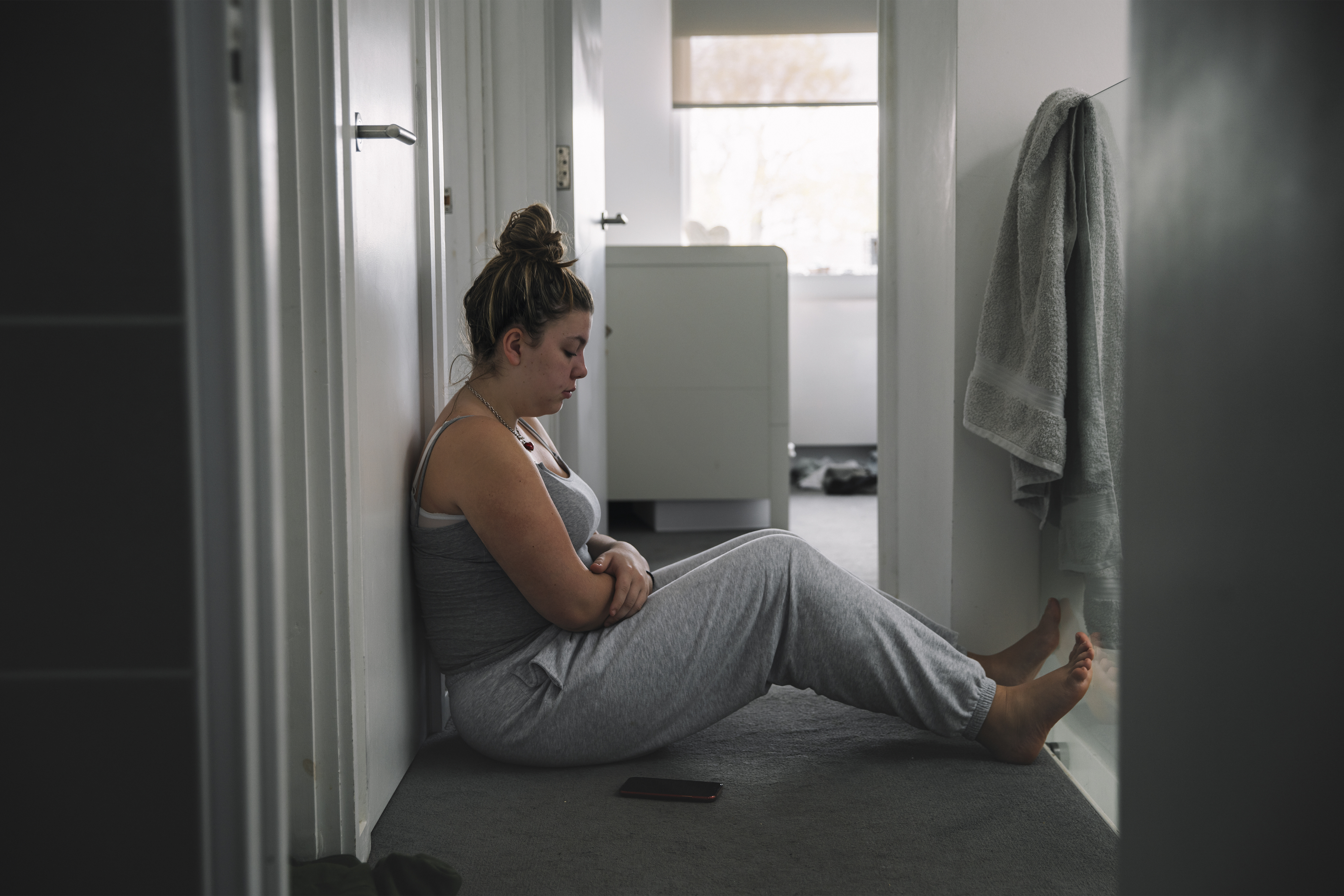
Either way, Becca said, "The real power [of the 90-Day Dinner] comes from its ability to connect us to others, combat loneliness, and provide perspective. The impact of which often transcends the 90 days."
• The National Suicide Prevention Lifeline is 1-800-273-8255. Other international suicide helplines can be found at befrienders.org. The Trevor Project, which provides help and suicide-prevention resources for LGBTQ youth, is 1-866-488-7386.
• The National Alliance on Mental Illness helpline is 1-888-950-6264 (NAMI) and provides information and referral services; GoodTherapy.org is an association of mental health professionals from more than 25 countries who support efforts to reduce harm in therapy.
